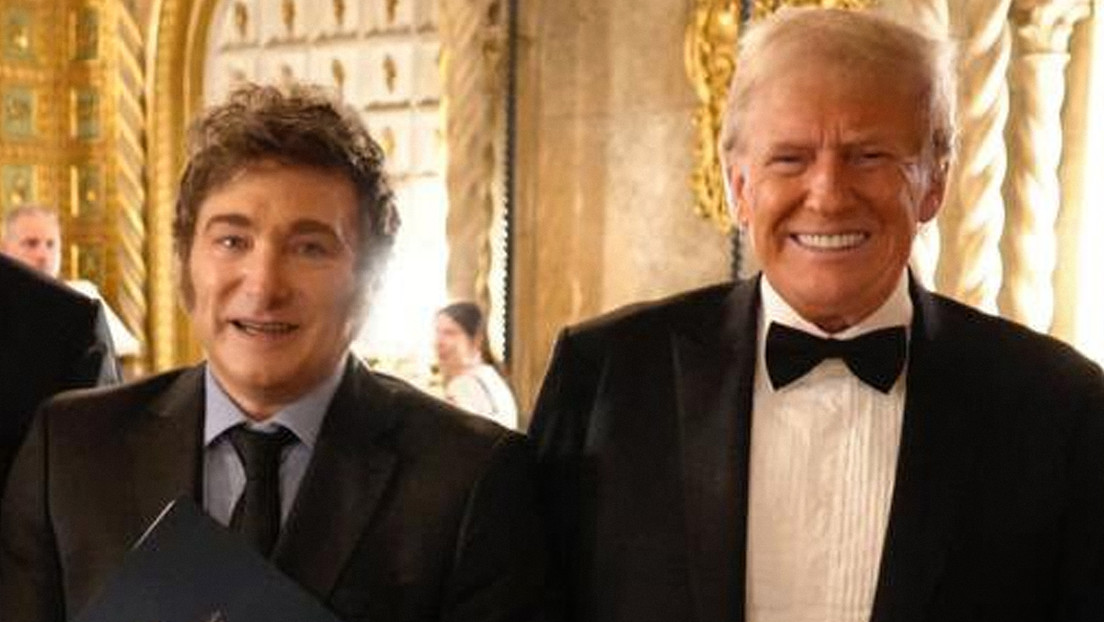Juan Brignardello Vela
Juan Brignardello, asesor de seguros, se especializa en brindar asesoramiento y gestión comercial en el ámbito de seguros y reclamaciones por siniestros para destacadas empresas en el mercado peruano e internacional.




The Argentine government, led by Javier Milei, is in the process of forging a strategic alliance with the United States, Italy, and Israel, aiming to establish commercial and military cooperation that could redefine its position on the international stage. This initiative, which already has a draft formal document, aligns with the current Argentine leader's conservative vision and seeks to counter what the government refers to as "socialism" and the influence of rival powers like China and Iran. Milei's proposal revolves around creating free trade agreements that not only aim to improve Argentina's economic conditions but also establish a framework for collaboration in security and intelligence matters. The intention is to consolidate a bloc that shares common interests in defense and counterterrorism, as well as in preventing activities that threaten the sovereignty of its member countries. This approach reflects a significant shift in Argentine foreign policy, which had traditionally opted for a more neutral and collaborative stance in the international arena. The current administration, in contrast, seeks to align itself with nations that share a conservative vision and oppose the policies promoted by the UN, especially regarding the 2030 Agenda, which Milei believes favors powers like China and does not adequately contribute to national development. In this context, Argentina's State Intelligence Secretariat (SIDE) would play a crucial role by collaborating with intelligence agencies from these allied countries, such as the U.S. CIA, the Israeli Mossad, and Italy's Agency for External Information and Security (AISE). This collaboration aims to develop strategies to counter the influence of regimes that the Argentine government considers hostile. Milei has already begun to outline this strategy in key meetings with international leaders. During his participation in the Conservative Political Action Conference (CPAC) in Florida, Milei met with Donald Trump to discuss his vision for closer cooperation between Argentina and the United States. Additionally, dialogue with Italian Prime Minister Giorgia Meloni during her visit to the South American country has also been a central piece of his diplomatic agenda. The Argentine ambassador to Israel, Axel Wahnish, is tasked with carrying out negotiations with Israeli Prime Minister Benjamin Netanyahu. This relationship is based not only on commercial interests but also on seeking a common approach to regional security, given the instability facing the Middle East. With this new direction, Argentina also hopes to attract foreign investments and improve its access to international markets. Milei's administration presents itself as a determined option to implement policies that prioritize free markets and reduce state intervention, characteristics that seek to align with the values promoted by its new strategic allies. However, this attempt to reconfigure alliances is not without criticism. Opposition sectors and international analysts have expressed concern about the shift toward a more polarized model aligned with extreme conservative positions. These critics argue that a foreign policy aimed at confronting ideologies could further isolate Argentina in a global context where multilateral cooperation is essential to tackle challenges such as climate change and economic crises. The success of this initiative will largely depend on the Argentine government's ability to negotiate agreements that are beneficial for all parties involved, while also maintaining internal support amid a divided electorate regarding the country's direction. Milei's administration finds itself at a crossroads, where each step forward must be carefully calculated to avoid greater tensions both domestically and in the international context. As negotiations progress and agreements are formalized, it will be crucial to observe how this new alliance influences regional and global politics. The decisions Argentina makes in the coming months will not only impact its economy but also define its place in an increasingly interconnected and complex world. Milei's strategy could mark a turning point not only for the country but also for the dynamics of relations between Latin American countries and global powers.

